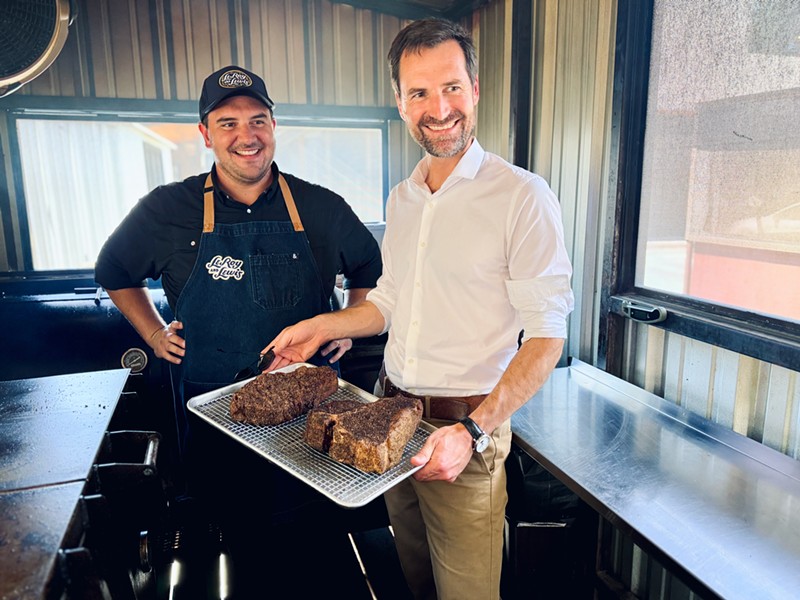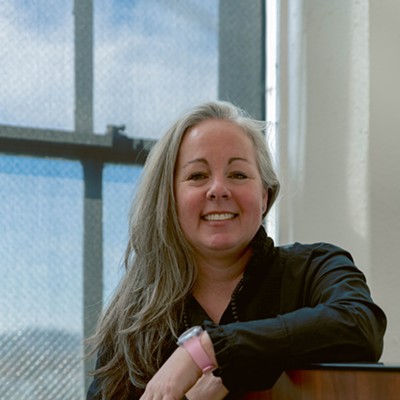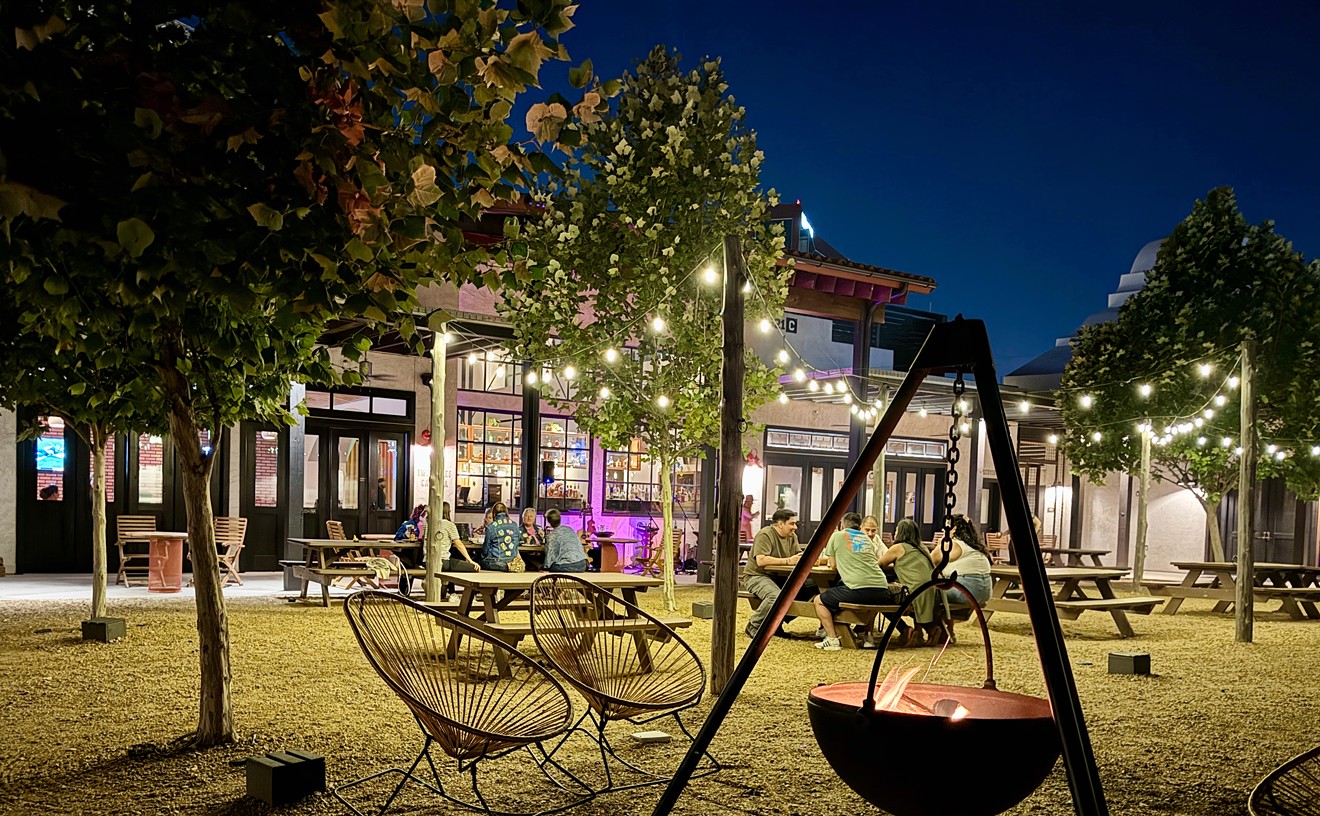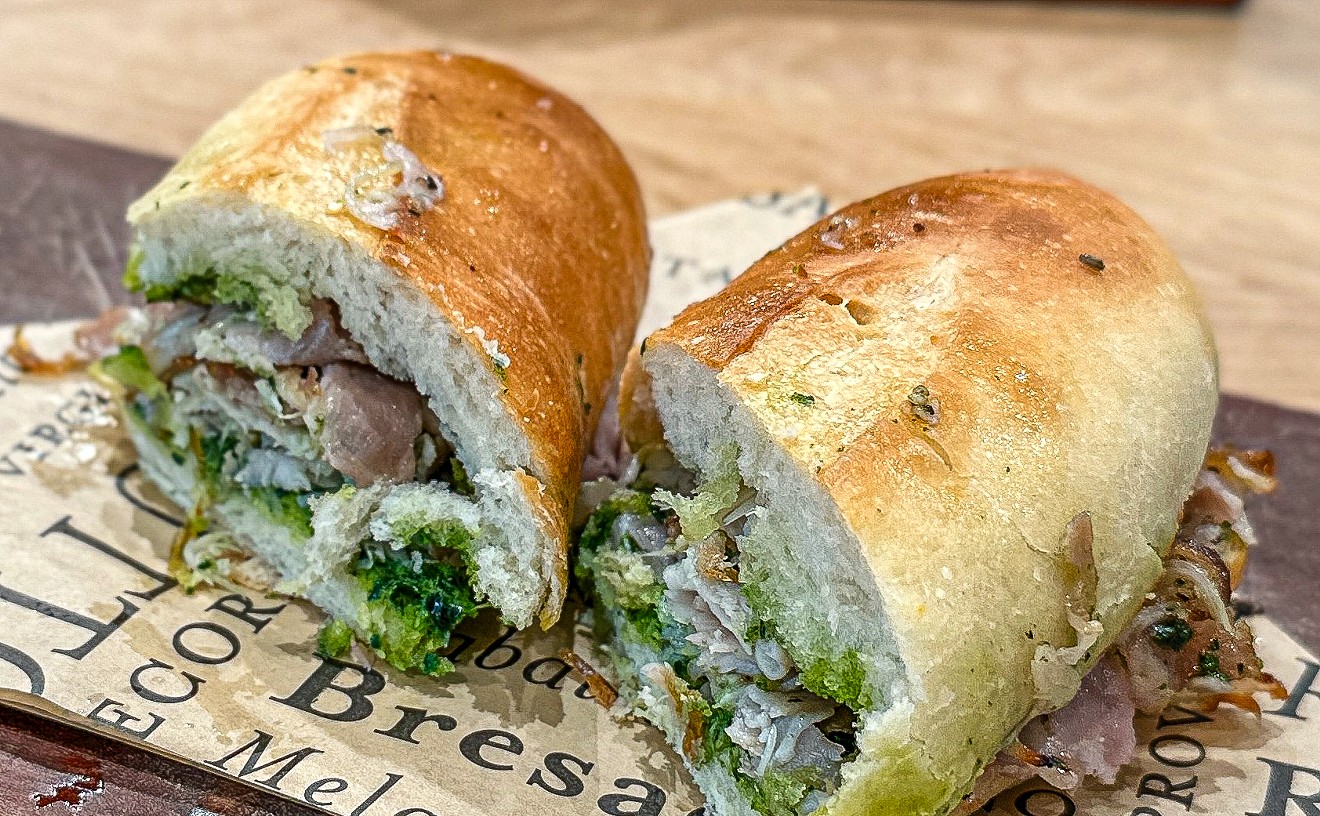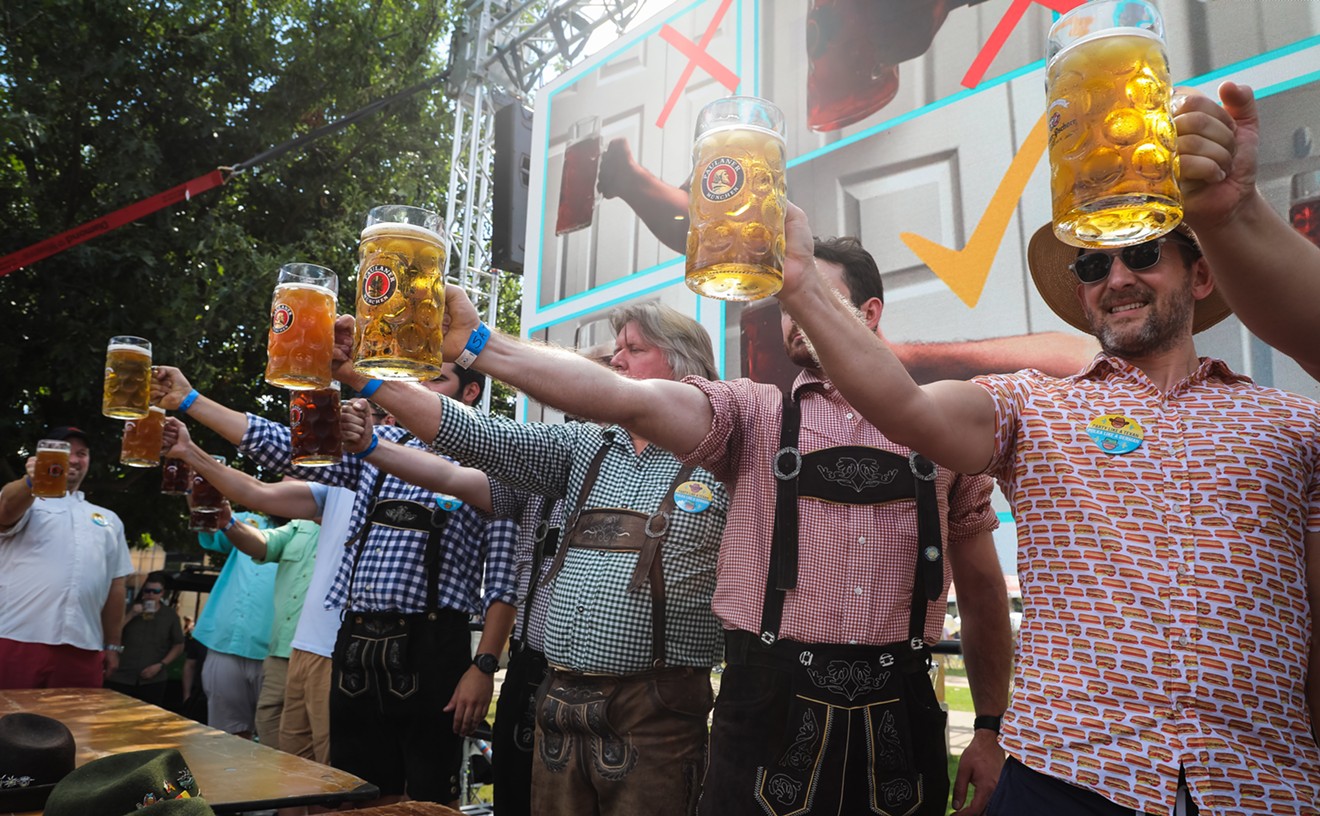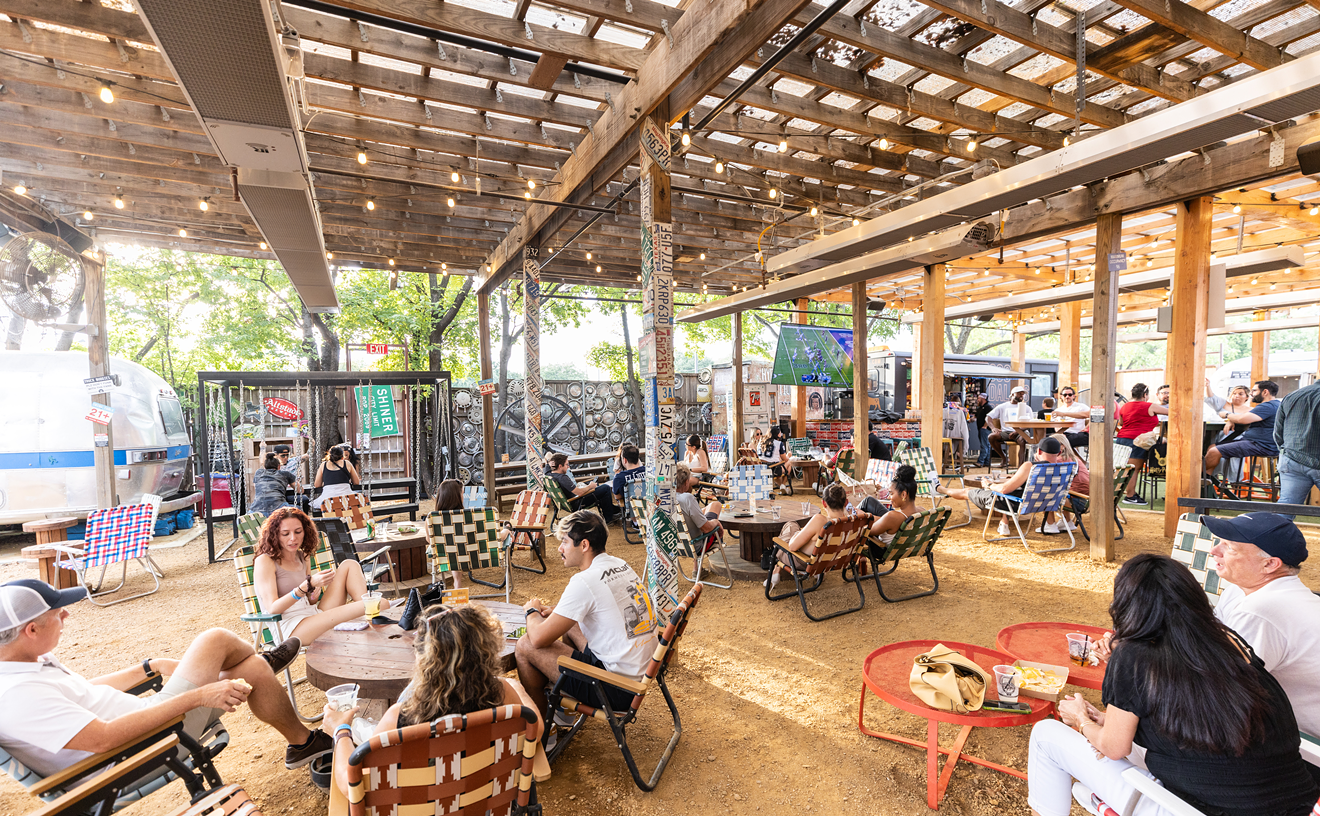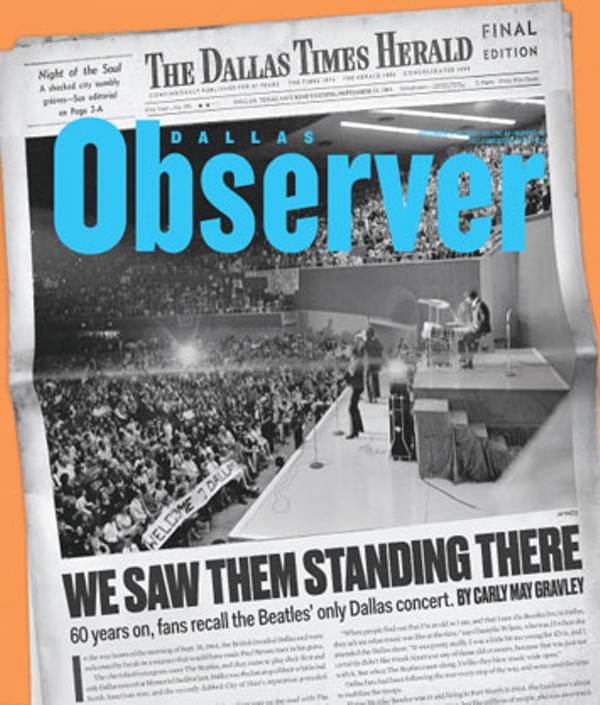The Michelin Guide is two-stepping its way to Texas. Last week a group from France arrived in the Lone Star State to explore some of our gastronomic gems and even went glamping in the Texas Hill Country, where they were introduced to the fine art of fireside s'mores.
The party was in Austin to announce the inaugural Michelin Keys for hotels in North America, including Texas. Much like stars for restaurants, keys are given to hotels that "offer the most exceptional stays."
Perched on a breezy Austin rooftop on Congress Avenue, with enchante French accents, the team revealed the new hotel designations in North America. Hotels can get up to three keys — the more the merrier. Criteria include architecture and design, service, character, economic value and connection to local culture. Four Dallas hotels received one key: Casa Duro, Hotel Swexan, Hotel Zaza and The Mansion. Hotel Drover in Fort Worth also received one key. The only hotel in North Texas to rate more than one star is Bowie House in Fort Worth, which got two keys.
But we weren't there for the hotels. We were hungry for the scoop on the upcoming guide and much-coveted Michelin stars to be awarded in Texas, particularly (hopefully) in Dallas. International Director Gwendal Poullennec, who has led the organization since 2018, was on hand, and we chatted about how inspectors get acquainted with local fare and how shows like Emily in Paris affect the guide's reputation.
After the press conference, Poullennec and his team met with a few reporters at LeRoy and Lewis Barbecue in Austin, which started as a food truck and opened as a restaurant earlier this year. If this South Austin spot — particularly the beef cheeks — is setting the bar for Texas, then we're all in for a treat.
First, since we just learned about the hotel designations, can a property earn both a key and a star?
Absolutely. It's important to understand that we have a different set of criteria. So for the restaurants, we value the quality of the products, the mastery of cooking techniques, harmony and balance and flavor, authenticity, the personality expressed on the plate and last, not least, consistency: Over time and across the entire menu.
When it comes to hospitality, we are looking for a place that is a gateway to the destinations — living the local life. Not a place you will stay and be completely disconnected. That's not the mission or spirit. Recognition is about architecture and design. It's taste and curation. And it's about the quality of service the team will deliver. We also value what you get for your money. And last but not least, authenticity. Places that are really singular and worth traveling for.
So that's really the selection for both categories [food and travel]. You can have a great place combining the highest quality of hospitality and the best quality of food. So you can combine a certain amount of keys and a certain amount of stars without any problem.
How do Michelin inspectors get acquainted with new markets, like Texas?
We have more than 30 nationalities of inspectors, but what is important is not just the fact that inspectors are truly open to the world, they all travel the world. For example, an American-based inspector will not only go across the U.S. or South America but also Japan, China and Europe, every year. The same for European and French inspectors, who travel to the U.S., to Asia and all across Europe. We need that diversity to recognize talent with a consistent approach so that we can offer a consistent benchmark to travelers so that we never compromise. Three keys have the same value here as in Europe and Asia.
So, Dallas restaurants aren't compared to other restaurants in Dallas or Texas, but rather the world?
Yes, to the world. And the only way to do that is to have professional people traveling around the world. And an inspector is eating out in restaurants about 300 times a year.
If Dallas restaurants get stars, it won't be from local inspectors?
It can be. Even when we involve local people — because we have inspectors based in America — they always work as one team and basically the same inspector never goes back twice to the same place. That helps us to maintain anonymity and also allows us to combine different perspectives. Ultimately it's a collective, team-based decision.
With such a global workforce, how do inspectors familiarize themselves with local foods, like Central Texas barbecue?
We can come back to barbecue, but let me give you an example. When we established a mission for Japan years ago, we needed to hire local people. We needed to understand the different types of Japanese food — and there many — to recognize creative, modern and traditional Japanese. So, it's a lot to really deeply understand the food culture, but always remain open-minded. And we have no quota approach: we recognize the quality without a set number.
When we come to Texas, for example, we say "What's good?" What matches the criteria for quality of products and mastery of cooking techniques? And, for example, for barbecue, you can focus on the quality of the product they're using, craftsmanship, mastery of open fire, everything. And then after you have the balance of flavor, consistency and personality, is it truly unique and authentic, not just something universal or globalized?
We have the people who will help us to understand the culture, they will compare all the places where you can eat Texas barbecue and recognize the best of them. And I would say what makes a difference when in the field is to be truly open-minded, like a blank canvas.
And it's not because the restaurant is highly priced and recognized that it's good. Sometimes you need the real gems. Those that focus on the products, and quality and spend less in marketing: you need to recognize them and that's the core of the expertise.
Have you heard good things about Dallas?
It's a bit too early even to talk about the restaurant ratings. That will be revealed before the end of the year. We are excited as well, and I have no doubt that the Lone Star State will get a bit more than one star [laughing].
What about Emily and Paris? Do shows involving Michelin Guide help or hurt the reputation of the ratings system? (Spoiler: in Emily in Paris, a character is outed as pretending to be an inspector.)
I think it's quite impressive that almost every year there's something, whether it's a series like Emily in Paris, which had a huge impact, frankly, or a Hollywood super-production dealing with Michelin, focusing on the stars and the plot is the Michelin Guide. And it's because you have a lot of mystery. Because we're anonymous.
When a restaurant receives a star, what changes do you see at those restaurants?
There are a lot of ripples. When you look at it from a chef's perspective, it's a life-changer in terms of recognition. It gives them more liberty to create because they are recognized for that talent. They can push and be bold since they've been justified in a way.
And it can change the reputation of a destination. For example, here in Texas, we hope to contribute to establishing Texas as a lifestyle reference.
This interview has been condensed and edited for clarity.

Audio By Carbonatix
[
{
"name": "Air - MediumRectangle - Inline Content - Mobile Display Size",
"component": "18855504",
"insertPoint": "2",
"requiredCountToDisplay": "2",
"watchElement": ".fdn-content-body",
"astAdList": [
{
"adType": "rectangle",
"displayTargets": "mobile"
}
]
},{
"name": "Editor Picks",
"component": "17105533",
"insertPoint": "4",
"requiredCountToDisplay": "1",
"watchElement": ".fdn-content-body",
"astAdList": [
{
"adType": "rectangle",
"displayTargets": "desktop|tablet"
},{
"adType": "rectangle",
"displayTargets": "desktop|tablet|mobile"
}
]
},{
"name": "Inline Links",
"component": "18349797",
"insertPoint": "8th",
"startingPoint": 8,
"requiredCountToDisplay": "7",
"maxInsertions": 25
},{
"name": "Air - MediumRectangle - Combo - Inline Content",
"component": "17105532",
"insertPoint": "8th",
"startingPoint": 8,
"requiredCountToDisplay": "7",
"maxInsertions": 25,
"watchElement": ".fdn-content-body",
"astAdList": [
{
"adType": "rectangle",
"displayTargets": "desktop|tablet"
},{
"adType": "rectangle",
"displayTargets": "desktop|tablet|mobile"
}
]
},{
"name": "Inline Links",
"component": "18349797",
"insertPoint": "8th",
"startingPoint": 12,
"requiredCountToDisplay": "11",
"maxInsertions": 25
},{
"name": "Air - Leaderboard Tower - Combo - Inline Content",
"component": "17105535",
"insertPoint": "8th",
"startingPoint": 12,
"requiredCountToDisplay": "11",
"maxInsertions": 25,
"watchElement": ".fdn-content-body",
"astAdList": [
{
"adType": "leaderboardInlineContent",
"displayTargets": "desktop|tablet"
},{
"adType": "tower",
"displayTargets": "mobile"
}
]
}
]

